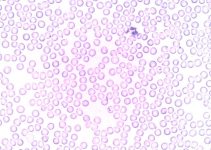When it comes to giving birth there are basically two options for delivery, a natural (vaginal) birth where the baby emerges from the vagina after a period of labor or a C-section.
A C-section is when the doctor performs a surgical procedure that involves opening the abdominal cavity and retrieving the baby and placenta.
To be clear, there are medical reasons why a C-section might be necessary. For example, if labor has been so long and intense that the mother is simply too exhausted to complete the delivery, the doctor might step in and perform a C-section.
It is also indicated when the life of the baby is in danger requiring immediate delivery. In such cases, there may be no option but to have the doctor perform a C-section.

Other than complicated causes, the mother has a choice. She can choose to deliver naturally (with or without an epidural) or she can request a C-section.
If the doctor feels a C-section is appropriate, given the condition of the mother and the baby, he will abide by the mother’s wishes. That is when it is time to start weighing the pros and cons of natural childbirth.
Let’s start by looking at the pros of natural childbirth
1. Surgery is risky
One of the best things about natural childbirth is that it does not involve invasive surgical procedures.
Surgical procedures, such as C-sections, carry with them the risk of infection, scarring, heavy bleeding, bad reactions to anesthesia, and they cause pain that lasts longer than natural childbirth [1].
2. The anesthesia from surgery effects your first moments with your baby
If you are knocked out or feeling woozy from the anesthesia, then you can’t hold your baby and bond with them right after delivery.
Those first moments can be important for the relationship between you and your baby. It is also much more soothing for your baby if you hold them right after delivery.
3. A C-section means a longer stay in the hospital
Recovering from a C-section takes longer than recovering from natural childbirth. Shorter hospital stays are better because all hospital stays involve a risk of infection or other complications. Not to mention it is just more pleasant to be at home.
4. Natural Childbirth is better for your baby
We’ve mentioned that is facilitates bonding. There are also two other reasons why it is better for your baby. First, during natural childbirth, the muscular contractions of the vagina squeeze the baby and force fluid out of his or her lungs.
That is beneficial because it reduces the likelihood of respiratory problems at birth. Second, the baby is exposed to good bacteria that boost their immune system during the trip through the birth canal [2].
Now let’s have a look at the cons of natural childbirth:
1. C-sections usually mean shorter labor
C-sections can shorten the length of time you are in labor. That is a good thing when it reduces the physical stress and exhaustion of labor.
2. Potential post-delivery pain in the perineum
After natural childbirth, you may experience pain in your perineum. This is the area between your vagina and anus [3]. It’s literally a pain in the butt!
3. You may experience stretching and tearing during delivery
During natural childbirth, your skin stretches and it might tear. You are also at risk for tearing your vaginal walls. You might even require stitches.
4. Natural childbirth can weaken your pelvic muscles
After natural childbirth, your pelvic muscles might be weak. This can lead to issues with your bladder and bowel control.
Many women have experienced a little urinary leaking when they cough or laugh, for example. There are exercises that can help strengthen your pelvic muscles and give you back some control [4].
5. The process of natural childbirth might injure your baby
During natural childbirth, there might be complications that cause an injury to the baby. The risks of injury to the baby go up if labor goes on for a long time.
Both mother and baby can become exhausted. If the baby is large, it also poses a greater risk of injury to both mother and child. Babies have been injured by forceps and other medical equipment during delivery.
Like so much else in life, there are both risks and rewards associated with natural childbirth. Whether natural childbirth is right for you is a judgment call and one you should make in conjunction with your doctor.
Your doctor will know if natural childbirth or a C-section is best under your unique circumstances. Those circumstances might even change during the course of labor. Give some thought ahead of time to what course of action you would like to take and discuss it with your doctor.
References



